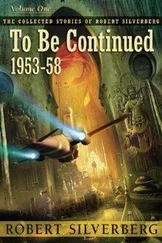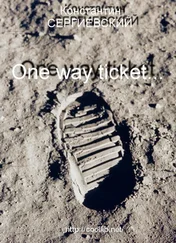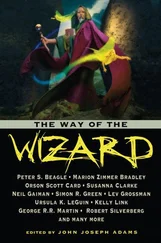Dee nodded, his young face slack with awe as his gaze skittered across Frank to the ship and the volcano and the crater wall and the pink sky.
“You have to talk to me, Dee. Tell me you’re OK. You’ve got to stay in touch, let me know if you feel hot or cold or breathless or sleepy or sick or you’ve a headache or one of your alarms has gone off. Got that?”
Dee nodded again before getting a grip on himself and saying: “OK, Frank. Sure.”
“Climb up, thread your legs through the struts and hold on to the back of the seat. I’ll take it easy, stop to check on you—so we can check on each other—and no stupid risks. Got that, Dee?”
“Got it, Frank.”
They had two jobs today: build the second buggy and fit out the trailers, then drive up out of the crater and retrieve the solar panel array. Because if they didn’t, they had no way to recharge the fuel cells. The ship’s own generators and batteries were at full stretch, keeping the ship’s systems going. If the buggies ran out of power then they wouldn’t move. If the ship ran low on power, they were going to have to sit there and freeze, or suffocate, whichever was first.
It struck Frank as another flaw in the mission plan. There were others, most intractable of which was the one supply cylinder that had dropped eighty miles away. That was pretty much out of range, and it might as well have been halfway around the planet for all that it mattered.
Many of the problems would have been solved by simply putting their ship closer to the eastern end of the crater, and actually parking up in the middle of the drop zone. Granted, none of them were pilots—at least, he didn’t think Brack was a pilot, but he didn’t really know anything about him—and they’d all been asleep. But someone back at Mission Control had known where the cylinders had come down, and still put the ship nearly at the original target.
He wasn’t in charge. If there was a reason for it all, he wasn’t party to it. He and the others just had to put up with the nonsense and try and sort order from chaos.
Frank sat in the seat, wiped his visor clear and set the buggy off at a steady ten miles an hour towards the drop-off. He’d seen on the map—Marcy had shown him, only yesterday—that the slope was least where it butted up against the edge of the crater. It added a little extra distance, but it was safer, and that was what they needed right now. Not to add to the danger that was all around them, just the other side of their faceplates.
The lower speed made travel much smoother. The tire plates deformed when rolling over a rock, and sprang back when they had passed over. Even the downslope onto the crater floor was nothing more than a gentle ride, only requiring Frank to keep the buggy wheels pointing in the same direction.
“Any of these places got names yet?” asked Dee.
“Aside from the volcano and the crater? I don’t know.”
“Maybe we should start doing that.”
“Maybe.” He’d not thought of naming things here, even though he’d done it at the XO facility on Earth. It seemed like something someone who was going to stay for ever was going to do. He was only on his third day awake, and perhaps the unreality of yesterday had affected him. He felt like he was dreaming still, and to give this slope, that line of hills, a sharp-edged crater, or a big blocky boulder a name, a permanent name, would solidify his presence. If he named things, he took ownership of them.
Once down on the crater floor, he found the tire tracks they’d made the previous day, still sharp and obvious in the dust. He could put the map away now, and just follow them east.
Just over an hour later, they were at the cylinder, and Frank made them check their suits over, looking at the contents of the air tanks, the water tanks, the pressure, the composition of the gases inside. There’d be no real exertion from either of them. Both were still at ninety per cent. How very different from yesterday.
Dee had to be talked through everything, but that wasn’t so much of a problem: “stand there and hold that” was good enough for most of the tasks. When it came to the few that required some expertise, Frank went through them step by step beforehand.
With both buggies out and fully fitted with their lights, cameras, roll cages, towbars and winches, they turned their attention to the trailers. These required some assembly—the lengths were fixed by through-bolts and the wheels went on two thirds of the way along.
When they were done, and had clamped the trailers to the buggies, Frank clambered into the empty cylinder and checked that they’d not left anything behind. Dee gathered up all the packaging and passed it to him in drums, which he stowed alternately left and right, until all that was left was to pack away the huge canopy of the parachute.
It should have been difficult, but it wasn’t, even though the size was monstrous. There was so little air to get trapped in the folds that the canopy could be bundled up and carried by the two men. Frank closed the doors on the supply ship and checked his tool belt.
“That was OK,” said Dee.
“It was OK because we know we’re not running out of air. Everything’s easier knowing that.”
“Sorry, Frank. She was… she was nice.”
Alice had told him how Marcy had killed twenty-six people, by jacking her truck’s autodrive to beat traffic control, and hitting a queue of stationary vehicles on the freeway. But she’d been nice, all the same.
“Yeah.” He chewed at his lip. He really didn’t want to have to discuss it. The wound was raw and open. She’d died at some point between him tying her to the back of the buggy and arriving at the ship, and most likely Alice would never tell him exactly when. He felt he could have done better, except then he’d have probably died too.
Dee pressed his gloved finger onto the side of the cylinder and made a mark in the dust. No, not a mark, a letter. He spelled out BRACK?
Frank wrote underneath RADIO ALWAYS ON. CAN HEAR ALL.
Dee took a step to one side, to write more. CAN FIX THAT. WILL SAY WHEN DONE.
He then smeared the whole conversation out with quick wipes of his palm, and batted his hands together, as if getting rid of the evidence.
Frank nodded. “We have to get to the next drop, and you’re going to have to drive. Did you get your license?”
“I got it. Not that it means much up here. But I played computer games, too. Controls are even the same as on the handsets.”
“This isn’t the same as some shoot-’em-up. Take it easy and follow me.”
“I got it, Frank.” Dee climbed up onto the second buggy and settled into the seat. “How do I turn this thing on again?”
“Button, right-hand side,” said Frank. “Tell me if you start to lose traction or you get warning lights. At any point: don’t wait until it becomes a problem.”
Frank mounted up and consulted the map. The crater wall was, for most of its circumference, a rampart: not quite a vertical wall of stone, but high steps of layered, fractured rock piled on top of each other, and totally impassable to anyone but the most serious mountain climber. At the eastern end, where they were, the wall had collapsed along a mile-and-a-half stretch. The rock had tumbled down, and the sand from the high plain had blown in and covered it, making a much shallower slope. A ten per cent gradient, against a hundred per cent elsewhere. He saw it as the first stroke of luck they’d had.
He still dialed down his suspension, and told Dee how to do the same. It was impossible to tell how deep the sand layer was. Those same rock ledges which dominated the crater wall elsewhere might lurk just below the surface.
How fast to take it? Marcy would have known, but Frank realized he was going to have to guess. Medium-quick, build up the momentum at the bottom and hope that it’d be enough to carry him up to the top. The crater floor was some fifteen hundred feet lower than the rim. They were climbing a mountain, no matter what their eyes told them.
Читать дальше












